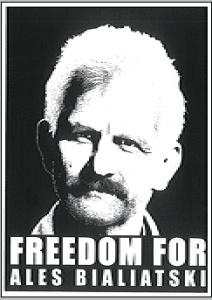Index relies entirely on the support of donors and readers to do its work.
Help us keep amplifying censored voices today.
Index on Censorship today condemned former motorsports boss Max Mosley’s attack on search engine Google
Testifying to the Leveson Inquiry into the press in London today, Mosley said: “The fundamental thing is that Google could stop this appearing but they don’t or won’t as a matter of principle…The really dangerous things are the search engines.”
Mosley revealed that he was planning to sue Google in Germany and France.
But a spokesman for free speech group Index on Censorship said Mosley’s attack on search engines was ill-advised and potentially dangerous:
“To request that Google remove information is to misunderstand the role of search engines,” said Padraig Reidy, news editor of Index on Censorship. “Search engines are not publishers and cannot be held responsible for everything on the web. If they are held responsible, it would fundamentally alter the web from the free space that has changed the way we live, ultimately rendering the web unsearchable as content is not indexed for fear of complaint.
Index on Censorhsip is covering the Leveson Inquiry live at @indexleveson
 The controversial Protection of State Information Bill reveals a an authoritarian streak that has always been present in the ANC, says Salil Tripathi
The controversial Protection of State Information Bill reveals a an authoritarian streak that has always been present in the ANC, says Salil Tripathi
(more…)
 The founder of one of Belarus’ leading human rights organisations has been sentenced to four and a half years in prison for alleged tax evasion.
The founder of one of Belarus’ leading human rights organisations has been sentenced to four and a half years in prison for alleged tax evasion.
Index calls on the UK Foreign Office to press for Ales Bialiatski’s freedom
(more…)
Science fiction author, activist, journalist and blogger Cory Doctorow spoke at the New America Foundation on Tuesday about his thoughts on productivity, creativity and parenting in the 21st century. The meeting framed copyright policy against broader concerns about its impact on civil liberties and human rights.
Doctorow touched on freedom of expression, and the pitfalls of upholding copyright and intellectual property laws while respecting citizens’ rights. He pointed out that “information doesn’t want to be free, people do”.
There is an inherent tension between upholding copyright law and resisting the need to implement censorship and surveillance mechanisms. Doctorow highlighted the fact that it is hard to restrict “general purpose” technologies, giving the whimsical example of trying to create a car wheel that could be used for all outings, except to escape from bank robberies. When addressing multi-use technologies, policies meant to prevent copyright infringement can be blunt tools of enforcement.
“We don’t know how to create a policy that allows for expeditious take down from YouTube of copyrighted material that doesn’t fight people in the Middle East who are participating in the Arab Spring who want to upload their videos in an expeditious way without having it taken down by false flag operations, for example.”
Recently the effect of copyright laws on free expression has been heavily debated in the US during discussions regarding the Stop Online Piracy Act. Doctorow said:
“One of my great frustrations in fights about things like SOPA…are all the people who should be on the other side of the SOPA in fighting the bill, but instead join with the forces endorsing it like the FLCIO. I have a friend who says ‘Just because you’re on their side doesn’t mean they are on your side.”
Rachel Greenspan is Index on Censorship’s US editor